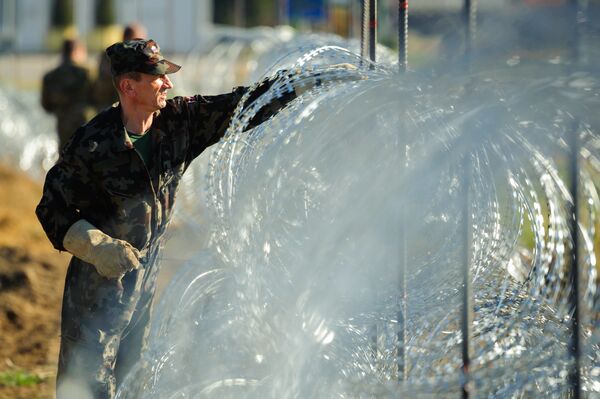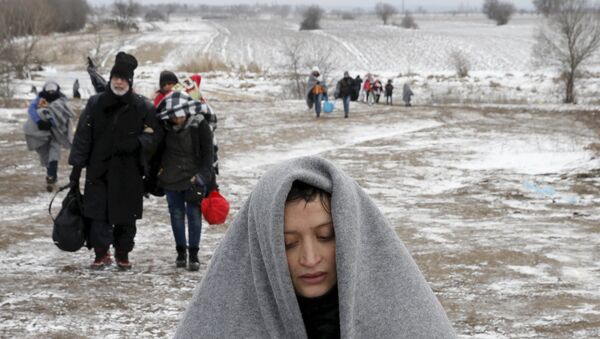It's estimated that 45,361 migrants and refugees have arrived in Greece this year. The International Organization for Migration says this is almost 31 times as many as the 1,472 who traveled to the European country in January 2015.
In 2016, 31,244 #migrants & refugees arrived in Greece by sea, a 2100% spike from a year ago https://t.co/ZgGdkLO4VN pic.twitter.com/4pT278phpa
— IOM (@IOM_news) January 20, 2016
Thousands have been left stranded on the country's border with Macedonia.
Dubbed the "patron saint of the Balkans" in a German news article, Hungarian Prime Minister Viktor Orban, has sent 16,000 concrete pillars and 10,000 rolls of barbed wire to help Macedonia and Bulgaria barricade their borders after Macedonia asked for EU help with managing the refugee situation.

In 2015, Hungary built razor wire fences on its border with Serbia and Croatia to stop the 1,500 refugees and migrants from arriving into the country on a daily basis. Viktor Orban believes Macedonia and Bulgaria should do the same and has called for the creation of a fence between the two countries.
"If we cannot secure the outer border [of the EU], regardless of how costly or demanding that is, we will destroy the Schengen regime by ourselves," Orban said.
Miro Cerar, Slovenia's prime minister, has joined the calls for more support from the EU for Macedonia.
"With an effective border management system in Macedonia it would not be necessary to close the borders within the Schengen area between Sweden, Denmark, Germany and Austria," he told German newspaper, Welt am Sonntag.

Jean-Claude Juncker, the European Commission president, has responded to the request from the Slovenian prime minister for more support to reinforce Macedonia's borders in a letter seen by the London newspaper, Financial Times.
"Although legally, Brussels itself cannot currently send such aid to a non-EU member," Juncker writes and states that individual member states should "support controls on the border with Greece through the secondment of police/law enforcement officers, and the provision of equipment."
The Republic of Macedonia or, as the European Union call it the Former Yugoslav Republic of Macedonia, has been a candidate for accession to the EU since 2005; negotiations with Brussels haven't started yet.
.#Refugees wrapped in blankets in attempt to warm up as they cross the #Macedonia- #Serbia border near #Miratovac pic.twitter.com/1ieJcUT7Of
— UNHCR Serbia (@UNHCRSerbia) January 26, 2016
The Visegard Group, which brings together four central and European countries, Poland, the Czech Republic, Hungary and Slovakia appear to be united in their approach to the refugee crisis. They want fences, not quotas.
And Viktor Orban, "patron saint of the Balkans" appears to be leading the support for Macedonia by sending barbed wire and concrete to reinforce its borders — while other EU leaders discuss what should be done.



